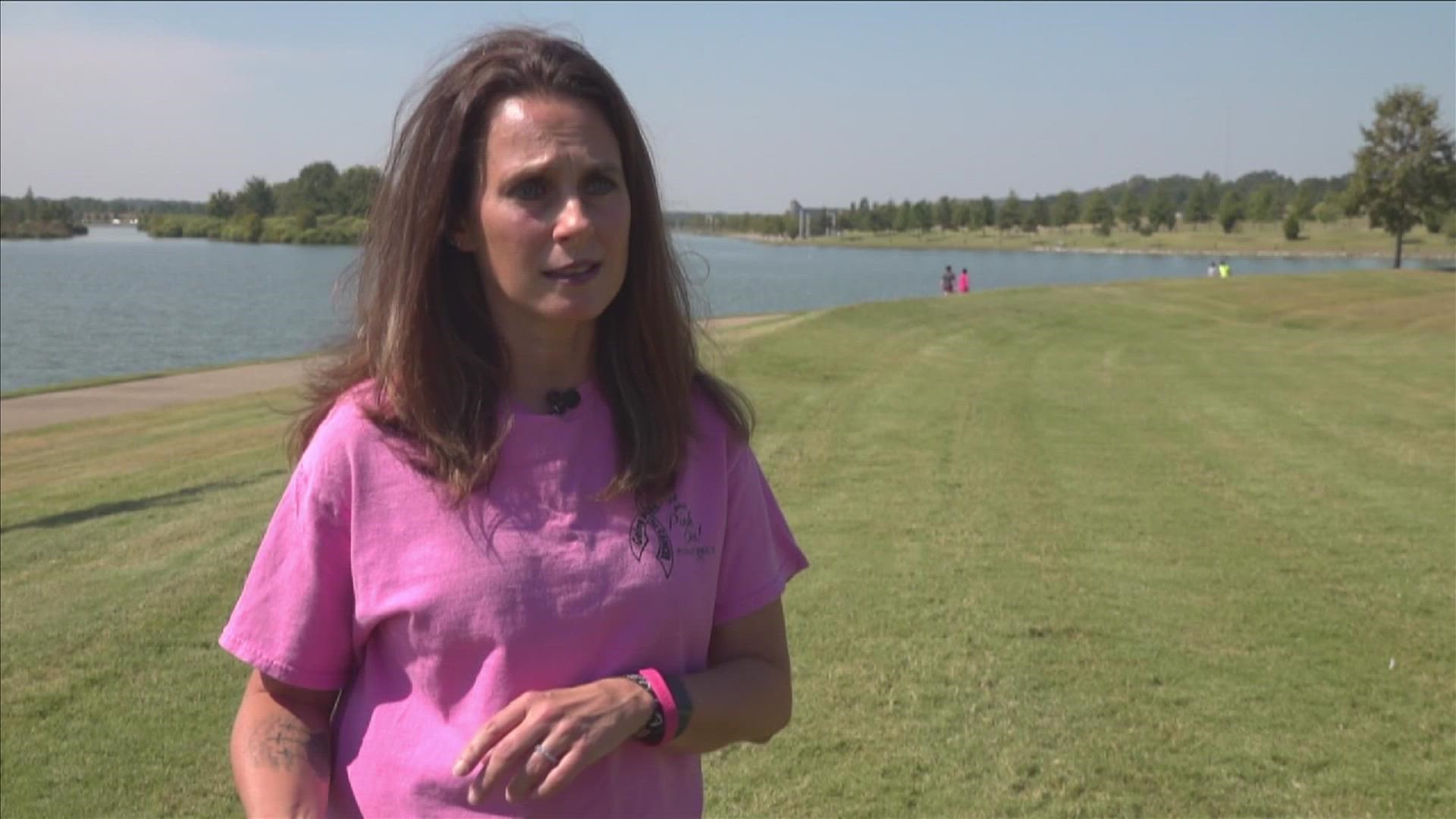MEMPHIS, Tenn. — Breast cancer does not appear in just one particular group, age, or sex. It can come about for a variety of reasons.
“There's some risk factors you can't change,” said Dr. Alyssa Throckmorton, Breast Surgeon, and Baptist Memorial Hospital’s Breast Program Medical Director. "You can't change your age. You can't change the fact that you're a woman and not a man. You can't change your family history."
Memphis native Christy Moore has a family history of breast cancer.
“It’s all around our family,” said Moore. “My mom and grandmother on my mom’s side and then on my dad’s, my aunt has it.”
Moore’s family history put her at a higher risk for breast cancer. It started with her mother.
“She found out at 38 that she had breast cancer. She had one of them taken off, went through radiation, chemo, and then 23 years later, it came back,” said Moore. “With my mom’s second diagnosis, five years after that, she found out she had ovarian cancer.”
Moore’s daughter influenced her hereditary fight for the future she wanted ahead.
“The fight for me means that my kid won’t have to see me go through the fight my mom went through. My mom is a hero in my eyes because she fought,” said Moore.
Her fight meant getting screened.
“To be honest, I put it off. I wasn’t sure if I wanted to deal with it yet,” said Moore.
She did not have breast cancer but tested positive for the BRACA-1 gene mutation making her more likely to develop it.
“With all the cancer in our family, we just thought it was best to go on with the surgery,” said Moore.
She had a double mastectomy and hysterectomy. Baptist’s breast surgeon, Dr. Alyssa Throckmorton, said that can be an option for some patients.
“In some of these women who have a very large family history of breast cancer or have a genetic mutation, then it may really provide good risk reduction; however, your average breast cancer survivor has about a 3% chance of developing a second breast cancer over a 10-year period,” said Throckmorton.
“Going from an 80% chance of having breast and ovarian cancer to a 4% chance was definitely worth it for me,” said Moore. It was also worth it for her family as well.
Though a hard decision, Moore is grateful to fight her own way.
“I feel empowered because it was something that my mom wasn’t given a chance for. I feel grateful and thankful that the medical field has come this far,” said Moore. “Live for the day like you might not have it tomorrow.” Tomorrow is worth every fight.
As we continue to bring awareness to breast cancer, the Junior League of Memphis and Vitalant are partnering to host a three-day blood drive. They are hoping to get at least 100 donors to commemorate the Junior League of Memphis’ 100th anniversary and help get more blood donors.
More than 25% of blood donations help cancer patients.
Junior League Memphis and Vitalant will be hosting a three-day blood drive Saturday, October 22, and Sunday, October 23 at the Junior League of Memphis Headquarters at 3475 Central Ave. and Monday, October 24, from 4-7 p.m. at Believing Church at 4798 Summer Ave.

